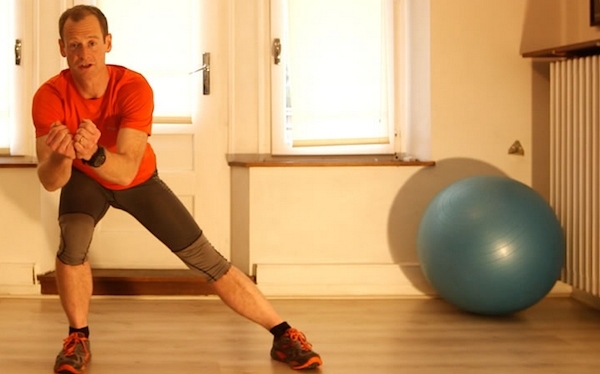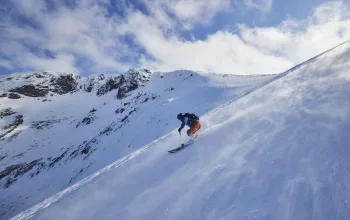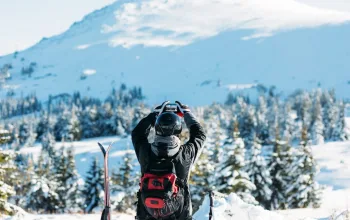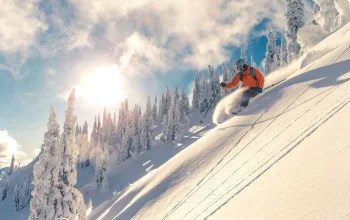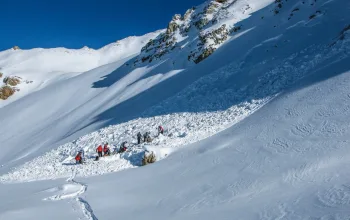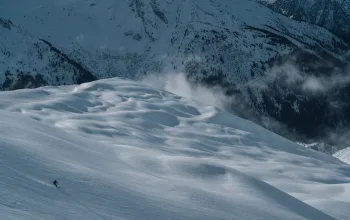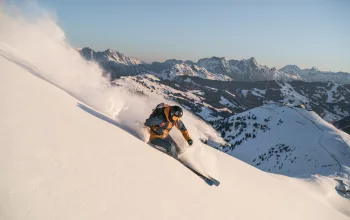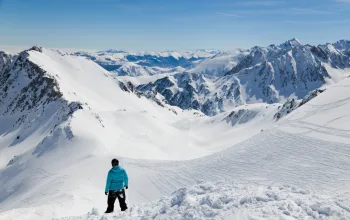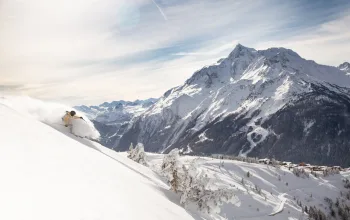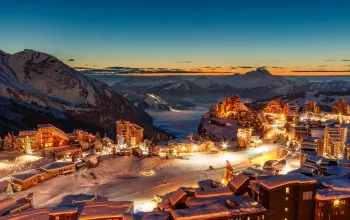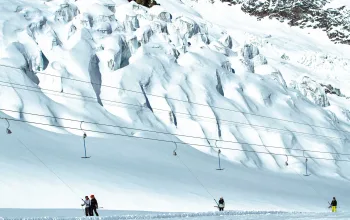Even for those who stay active year round, the specific muscles used when skiing are often hard to work in a gym, leading to soreness and potential injury when hitting the slopes.
What makes skiing tough? Well for starters rather than being a regular activity most people only ski for a week a year. Our general movement patterns, how we do things like walk, run, get out of chairs, go up and down stairs etc, don’t really prepare us for the different ways of ‘sliding’ safely and well down a mountain. The extra weight on our feet from the skis and boots, the level of intensity associated with high speeds and the fact that we generally have a very limited time every year in which to learn to improve make for very real challenges.
The fact that all the ski disciplines are so addictive and such utterly brilliant fun means that it keeps us coming back for more each time. The beauty, for many, is the amazing mountain environment and that it is so easy to push limits and conquer fears. Pushing limits can do wonders for self-confidence, satisfaction and helping you to set perhaps new unforeseen goals in all aspects of your life. The downside is that it can also lead to you finding out the limits to your ability. The forces from the skis and boots magnify the normal stress on knee ligaments which often can’t cope and can rupture.
Getting fit, strong and technically competent for skiing makes the difference between enjoying your holiday and having a great holiday and can also help protect against injury which will not only ruin your holiday but can extend to problems when you return.
The human body is amazing, there is certainly nothing man made that can come close to its diversity of function, skill and ability to self-regulate and repair. The big issue though is despite all our refinements from evolution we ski for fun not survival so our bodies haven’t evolved to move on skis. We have, however, developed the most amazing skeleton with, muscle and nerve control that means we can learn to do almost anything, acrobatics, swimming,100 mile runs etc.
Doing ski specific exercises prior to our annual skiing holiday really helps the body to prepare for this un-natural activity. Learning to control the high forces associated with skiing, that are largely side to side rather than forwards and backwards, are a big step on the way to improving performance and therefore fitness for skiing. We can also teach the body necessary muscle and nerve control to refine those movements with the benefit of endurance as added protection.
Strength exercises are normally the focus of preparation for skiing, and this isn’t a bad thing! It’s just that there is so much more that we can do to get fit for skiing, improve our performance and prevent injury. Starting any exercise routine with some activation exercises to awaken the body systems to the exercises that are about to come, makes good sense. These can be ski specific and focus on the lower limb and large leg muscles that we are about to challenge.
Often overlooked is core strength. Having a strong core provides a stable base for your limbs to move from allowing you more controlled movements in dynamic situations. Think about the movements that your legs need to achieve whilst your body effectively stays in the same position when you’re skiing. Dynamic control of your movements is something that we can always improve on and this can also be achieved through balance exercises. The better your balance is the more likely you are to be able to keep your movements under control. This is especially useful for transferring weight from one leg to the other and also when trying to regain your position after suddenly being thrown off balance. Never forgetting a good old stretch down at the end of an exercise session. This keeps muscles supple and of good length, which not only puts them in an optimal position to function but also allows good posture and alignment during movement.
Neil Maclean-Martin, a leading ski physiotherapist in Chamonix and clinical director of the SkiFit programme, is very aware of how fitness and technical competence can lead to improved performance, reduced risk of injury and more enjoyment from your holiday.
‘Being based in a major ski resort like Chamonix we see many of the injuries that occur from skiing accidents on the mountain, most of which are the result of a lack of preparation and fitness. In response and in an effort to try and help people prepare better for their skiing we have developed a programme of exercises to help people get fit and strong for their skiing activities.
Tried and tested over the past four years, professional and recreational skiers have all discovered the benefits that come with a focused pre-skiing fitness programme. Following this 8-week programme of over 100 exercises it is evident that people feel ready to ski when they clip in for the first time at the start of the season.
This is where we see the SkiFit fitness programme and the Skiplex technical programme demonstrate a perfect symbiotic relationship. The conversion of improved physical strength and control into better skiing can only really take place in the hands of a skilled instructor while you are actually skiing. Happily, now with Skiplex this has become an option before you leave. Ski holidays can exist without SkiFit or Skiplex, however why not get fit with specific ski fitness and convert it with sports specific training and excellent technical input without adding in all the real life pressures of a ski holiday.
Let’s face it why not try learning to ski without the worries of weather, not knowing where you are going, stress from dropping kids off at ski school etc. And at the end of the day you are there to have fun and return home in one piece, ski holidays are a significant investment of your time and money, so you should invest in yourself to ensure you are in the best position to enjoy your holiday.


